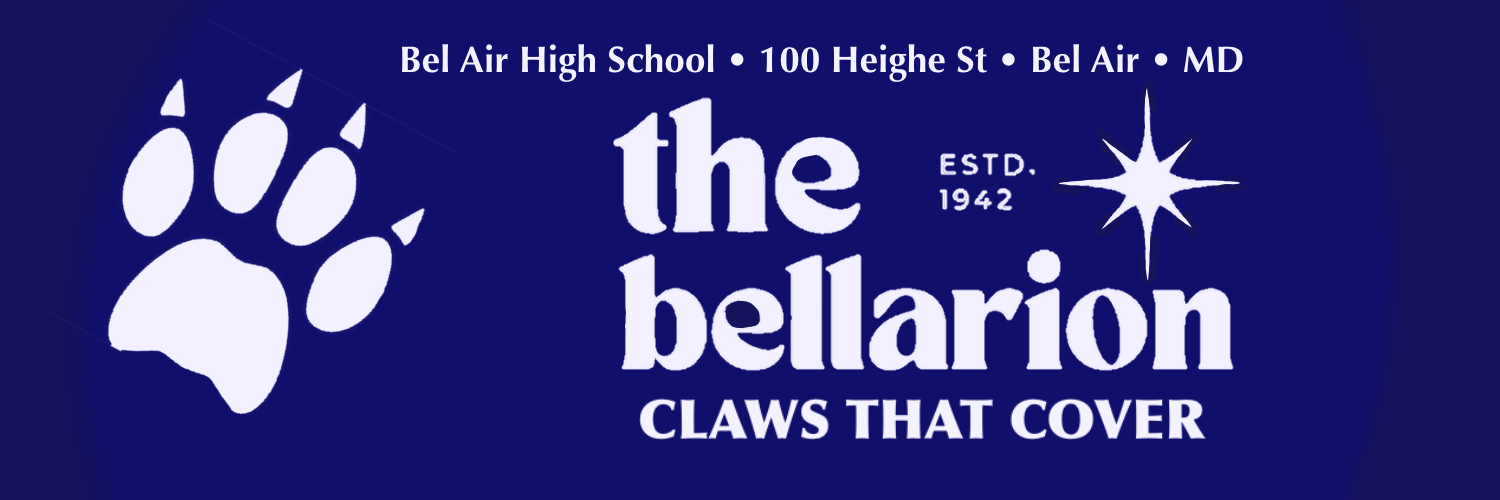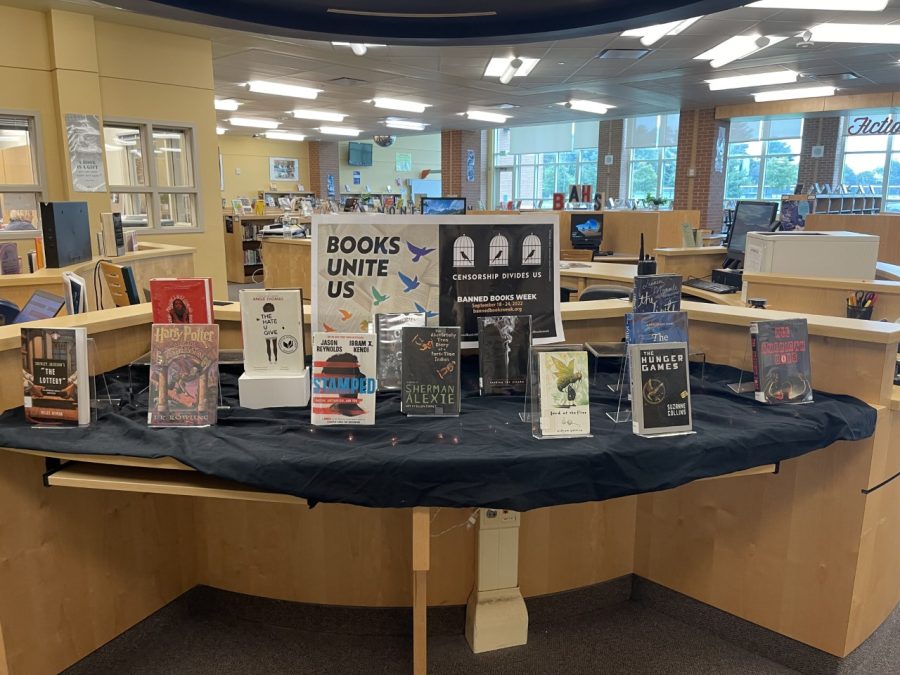Bel Air Media Center Celebrates “Banned Book Week”
Banned books are becoming increasingly more common across schools in America. The past three weeks have celebrated “Banned Book Week,” an annual event in opposition to the surge of schools, groups, and libraries banning books from their selection.
October 6, 2022
Banned books are becoming increasingly more common across schools in America. The past three weeks have celebrated “Banned Book Week,” an annual event in opposition to the surge of schools, groups, and libraries banning books from their selection. This is the 40th anniversary of banned book week as the movement started in 1982.
According to their official website, this year’s theme is “Books Unite Us. Censorship Divides Us.” This “week” is typically held during the last week in September, however it can be celebrated anytime throughout September to October.
Ms. Holly Olive, the current media specialist for Bel Air High School, has been working hard to make this year’s banned book week a success: “BAHS celebrates mostly through displays and lessons within the library. I explain banned book week during library orientation for 9th and 10th grades. I also try to have conversations with students who seem interested” (See photo gallery).
As of the 2022-2023 school year, there is only one book that is banned in the state of Maryland: George M. Johnson’s All Boys Aren’t Blue in Wicomico County Schools. While the book was not included in a curriculum, it was available in a school’s library. According to Wicomico County Schools’ Superintendent Hanlin, it was reported that two media specialists “…did not recognize the extremely graphic nature of this book when it was ordered. They corrected their own mistake, meaning that it didn’t need to go through the review process.”
Locally, Harford County Public schools currently has no banned books. Ms. Olive explained the process: “Harford County’s policy is that we do not ban books. What books are part of curriculum and found in school libraries is controlled at the county level. Our county has a process for when books are challenged. There is an official form to fill out and a review panel is assigned. This panel usually has two student members.”
Nationally, since July 1st, 2021, there have been 1,658 banned books. A few of the most frequently banned books include Gender Queer, by Maia Kobabe; Lawn Boy by Jonathan Evison; and All Boys Aren’t Blue by George M. Johnson.
Olive listed off a few of her favorites from the large list. “I would say I liked The Hate You Give the best, however They Both Die at the End was also great. I loved the Harry Potter series and those were challenged in certain areas.”
Mrs. Benita Berg, the Media Technician for BAHS, explained her personal favorites. “Mine would probably have to be Hunger Games [Trilogy], Lord of the Flies, as well as The Great Gatsby.”
In conclusion, Media Specialist Olive noted that banned books often highlight marginalized groups of people and can tell difficult stories. “It is important to note that recently, the books that are being challenged are books with characters of color or characters who are part of the LGBTQIA+ community and typically tell a story that is unflattering to certain groups of people…There are also parent groups that focus on book challenges,” Olive shared.
Ms. Olive emphasized that the BAHS library is always open to discussion on the topic.


